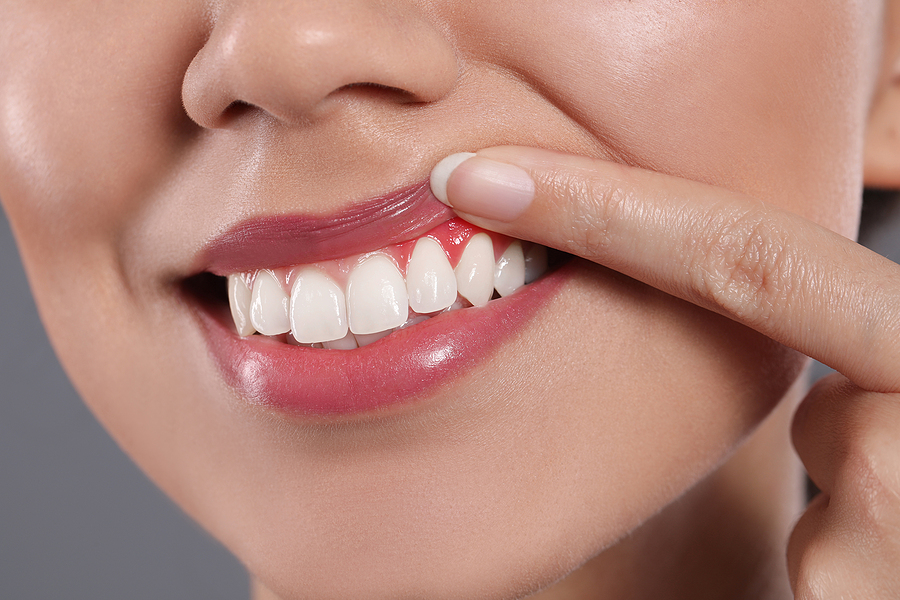Introduction
What defeciency causes teeth sensitive? Sensitive teeth can cause discomfort and pain, making it difficult to enjoy everyday activities such as eating and drinking. While there can be several causes for tooth sensitivity, one factor that is often overlooked is nutritional deficiencies. In this article, we will explore the connection between deficiencies and sensitive teeth, focusing on key nutrients that play a vital role in maintaining healthy teeth and gums.
Understanding Tooth Sensitivity
Tooth sensitivity, also known as dentin hypersensitivity, occurs when the underlying layer of your teeth, called dentin, becomes exposed. Dentin contains tiny tubules that lead to the nerve endings of your teeth. When these tubules are exposed, external stimuli like hot or cold temperatures, acidic foods, or even brushing can trigger pain or discomfort.
Common Causes of Tooth Sensitivity
Before delving into the role of nutritional deficiencies, it’s essential to understand some common causes of tooth sensitivity. These causes include:
Dental Cavities
Tooth decay or cavities can lead to tooth sensitivity. When bacteria break down food particles, they produce acids that erode the enamel and expose the dentin. This exposure can cause sensitivity.
Gum Recession
Receding gums expose the tooth roots, which lack the protective layer of enamel. Without this layer, the dentin is more susceptible to sensitivity.
Enamel Erosion
Acidic foods and beverages, aggressive brushing, and acid reflux can contribute to enamel erosion. Once the enamel wears away, the dentin becomes exposed, resulting in tooth sensitivity.
The Role of Nutritional Deficiencies
Nutritional deficiencies can weaken teeth and gums, making them more prone to sensitivity. The following deficiencies are particularly relevant to tooth sensitivity:
Calcium Deficiency
Calcium is essential for maintaining strong teeth and bones. A deficiency in calcium can lead to weakened tooth enamel and increased tooth sensitivity.
Vitamin D Deficiency
Vitamin D plays a crucial role in the absorption of calcium. Insufficient levels of vitamin D can result in poor calcium utilization, leading to weakened teeth and heightened sensitivity.
Vitamin B Deficiency
Certain B vitamins, such as vitamin B12, are necessary for maintaining healthy oral tissues. Deficiencies in these vitamins can contribute to gum problems, including sensitivity.
Iron Deficiency
Iron deficiency, also known as anemia, can impact oral health. It can cause glossitis, an inflammation of the tongue, which may lead to increased tooth sensitivity.
Other Contributing Factors to Tooth Sensitivity
While nutritional deficiencies can contribute to tooth sensitivity, there are other factors to consider as well. These include:
- Aggressive brushing or using a toothbrush with hard bristles
- Teeth grinding or clenching, known as bruxism
- Dental procedures like teeth whitening or restorations
- Acidic foods and beverages
- Acid reflux or gastric conditions
Managing Tooth Sensitivity
To alleviate tooth sensitivity, it is important to address the underlying causes. Here are some tips to manage tooth sensitivity:
- Practice good oral hygiene by brushing gently with a soft-bristled toothbrush and using desensitizing toothpaste.
- Avoid acidic foods and beverages that can erode the enamel.
- Use a mouthguard if you grind or clench your teeth.
- Visit your dentist regularly for check-ups and professional cleanings.
- Consider dietary changes and supplements to address any nutritional deficiencies.
Conclusion
Tooth sensitivity can be caused by various factors, and nutritional deficiencies play a significant role in contributing to this condition. Calcium, vitamin D, vitamin B, and iron deficiencies can weaken teeth and gums, leading to increased sensitivity. By addressing these deficiencies and adopting good oral hygiene practices, it is possible to manage and alleviate tooth sensitivity.
FOR MORE
For more informative and knowledgeable articles or blogs visit our website https://cincinnatidentalservices.org
Frequently Asked Questions
Yes, poor oral hygiene can contribute to tooth sensitivity. Inadequate brushing, improper flossing, and neglecting regular dental check-ups can lead to dental problems that result in sensitivity.
To prevent tooth sensitivity, maintain proper oral hygiene practices, use a soft-bristled toothbrush, avoid aggressive brushing, limit acidic foods and drinks, and visit your dentist regularly for check-ups.
Natural remedies for sensitive teeth include using desensitizing toothpaste, applying a fluoride gel, avoiding teeth grinding, and trying home remedies like rinsing with saltwater or using a clove oil compress.
In many cases, tooth sensitivity can be managed and reduced, but reversing it entirely depends on the underlying cause. Treating the cause of sensitivity can help alleviate the symptoms.
If you experience persistent or severe tooth sensitivity, it is recommended to see a dentist. They can diagnose the cause of the sensitivity and provide appropriate treatment options.

